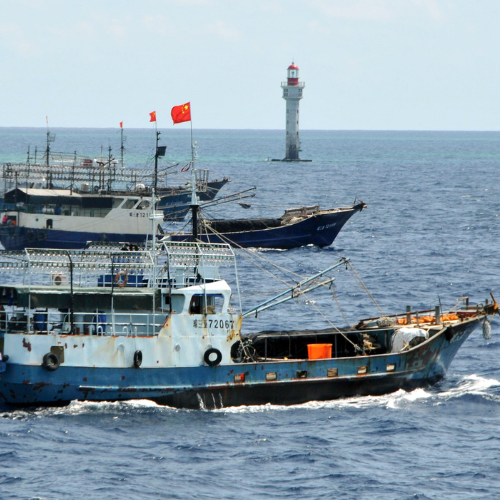A shocking report has revealed a brutal violation of international law, exposing how Chinese fishing vessels secretly used North Korean forced laborers in a massive breach of United Nations (UN) sanctions.
Between 2019 and 2024, at least 12 Chinese tuna boats in the southwest Indian Ocean employed North Korean workers, keeping them trapped at sea for years without access to land or communication with the outside world. The investigation, conducted by the London-based Environmental Justice Foundation (EJF), was based on firsthand testimonies from 19 Indonesian and Filipino crew members.
According to the findings, Chinese fishing companies went to extreme lengths to conceal the presence of North Korean workers. These laborers were frequently shuffled between vessels, preventing them from ever stepping on shore. Some workers reportedly endured up to a decade of isolation at sea under harsh and inhumane conditions.
Alarming Surge: China’s Expanding Spy Network Poses a Dire Threat to U.S. Security
The situation has sparked global outrage, as this treatment is classified as forced labor, a severe human rights violation. The fishing industry is already notorious for labor abuses, but this case has revealed an even darker reality—one that has alarmed activists and international watchdogs.
Defying Global Sanctions: China’s Alarming Role
The employment of North Korean workers on these Chinese boats directly violates a 2017 UN Security Council resolution, which banned all countries from issuing work permits to North Koreans after 2019. The resolution aimed to cut off financial lifelines to the North Korean government, which uses foreign earnings to fund its nuclear weapons program.
Despite the ban, North Korean laborers have continued to work in various industries, including construction and manufacturing in China and Russia. Now, this latest revelation suggests that China has actively bypassed international laws to continue exploiting North Korean laborers—potentially funneling funds into Pyongyang’s nuclear ambitions.
Fear and Control: How China Targets Tibetans and Uyghurs in Switzerland
Fish caught using these illegal workers have reportedly entered major markets, including Japan, Taiwan, and South Korea. This means that millions of consumers may have unknowingly purchased products tainted by forced labor.
China Denies Accusations, but Global Pressure Mounts
When confronted with these findings, a Chinese Foreign Ministry spokesperson dismissed the allegations, claiming ignorance of the matter while insisting that China abides by international laws. However, China’s history of weak enforcement of UN sanctions against North Korea has raised serious doubts.
This discovery is the first publicly documented case of North Korean laborers working aboard distant-water fishing vessels. Experts warn that similar violations may be widespread, allowing North Korea to continue secretly benefiting from illegal labor exports.
The international community is now demanding accountability. With mounting evidence of China’s role in shielding North Korea from sanctions, world leaders face increasing pressure to respond decisively. The question remains: Will global powers take action, or will this shocking betrayal go unpunished?


